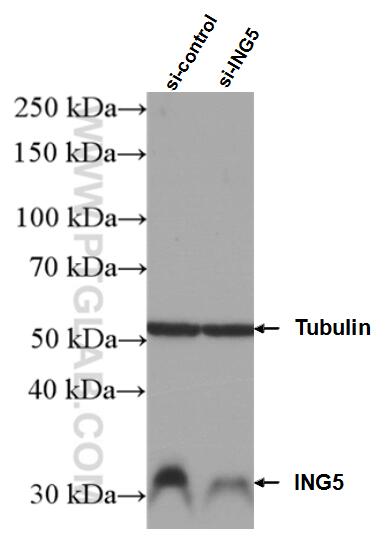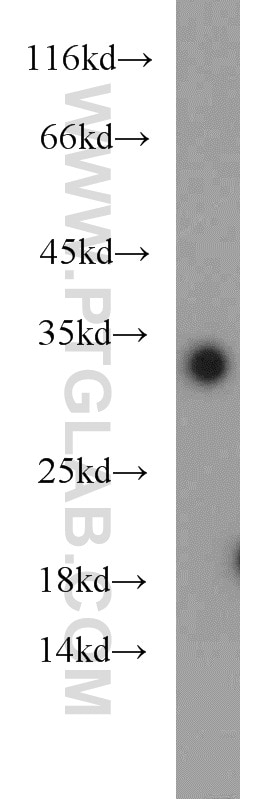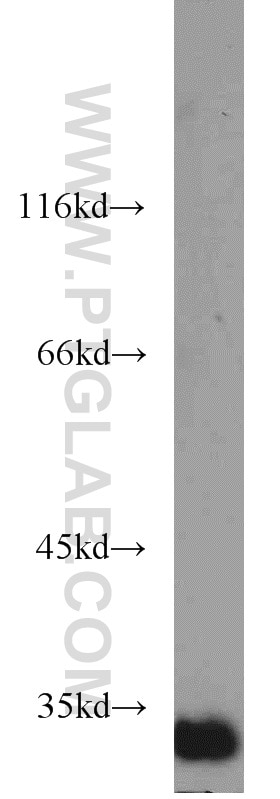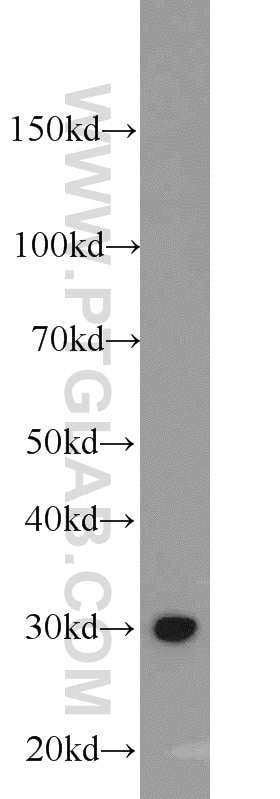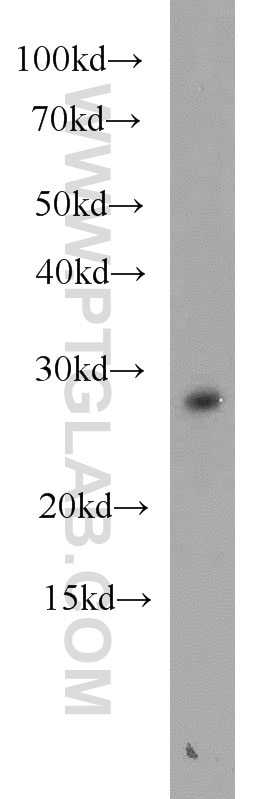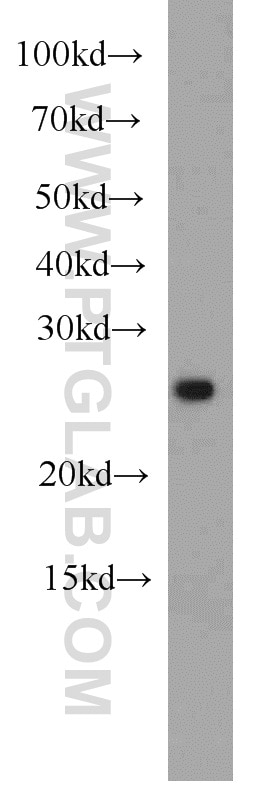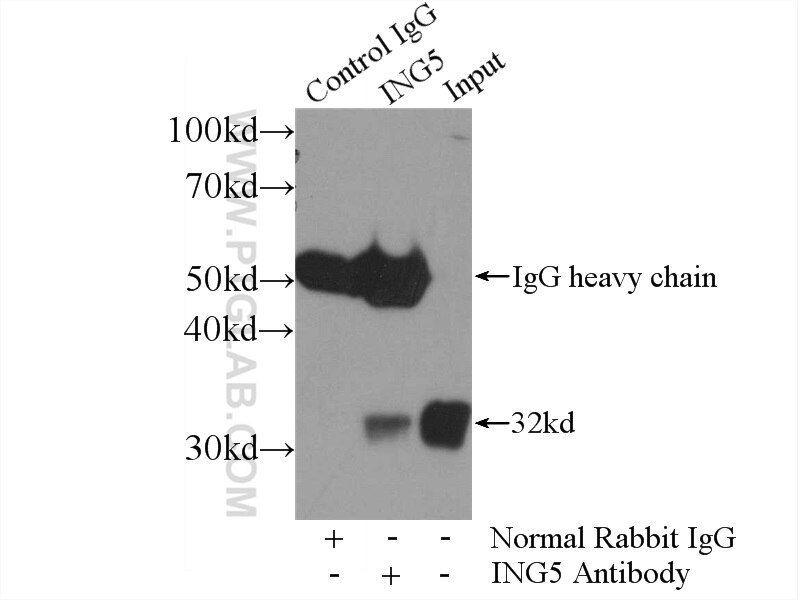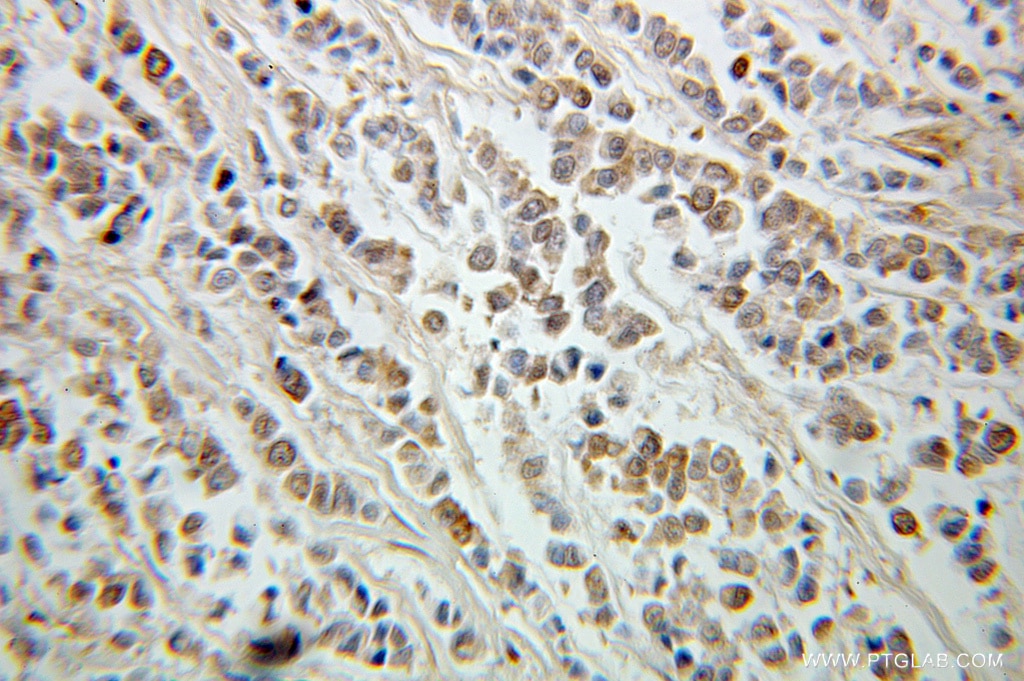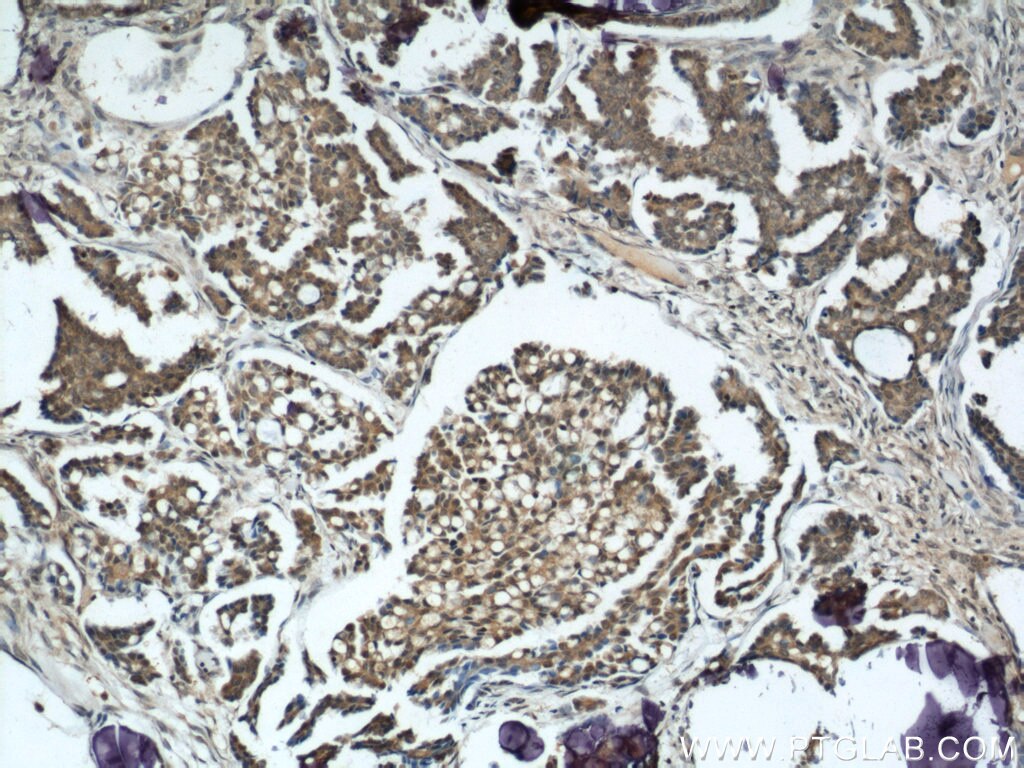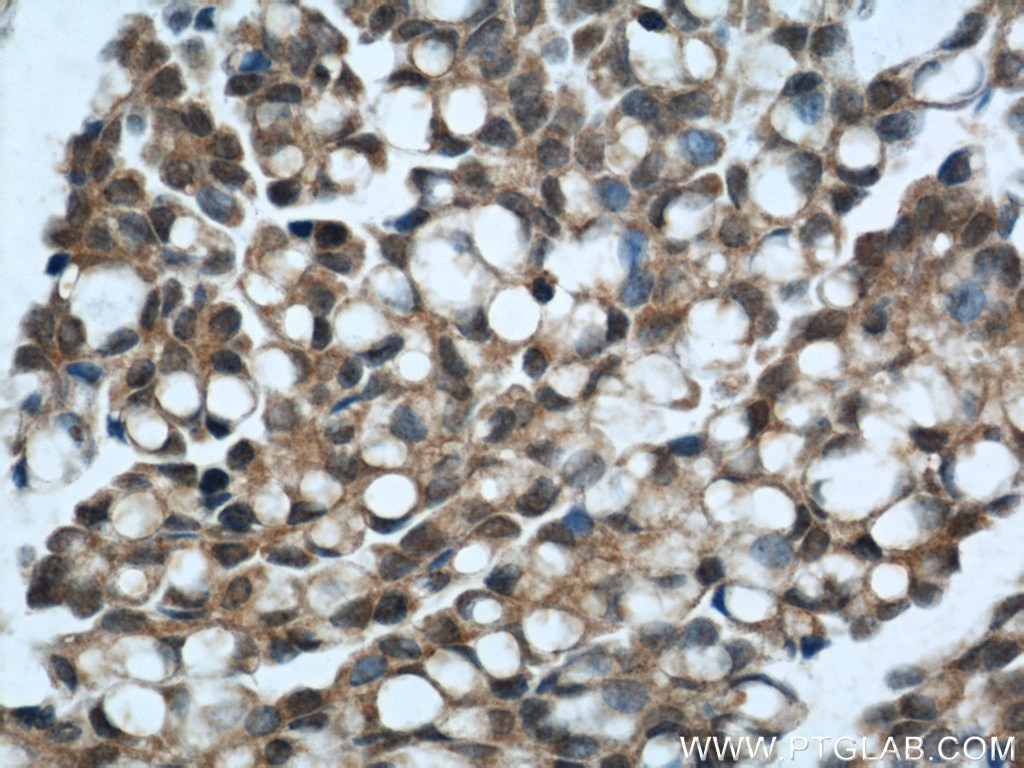Validation Data Gallery
Tested Applications
Recommended dilution
| Application | Dilution |
|---|---|
| It is recommended that this reagent should be titrated in each testing system to obtain optimal results. | |
Product Information
10665-1-PBS targets ING5 in WB, IHC, IP, Indirect ELISA applications and shows reactivity with human, mouse, rat samples.
| Tested Reactivity | human, mouse, rat |
| Host / Isotype | Rabbit / IgG |
| Class | Polyclonal |
| Type | Antibody |
| Immunogen | ING5 fusion protein Ag1059 相同性解析による交差性が予測される生物種 |
| Full Name | inhibitor of growth family, member 5 |
| Calculated molecular weight | 28 kDa |
| Observed molecular weight | 28-32 kDa |
| GenBank accession number | BC005370 |
| Gene Symbol | ING5 |
| Gene ID (NCBI) | 84289 |
| RRID | AB_2280522 |
| Conjugate | Unconjugated |
| Form | Liquid |
| Purification Method | Antigen affinity purification |
| UNIPROT ID | Q8WYH8 |
| Storage Buffer | PBS only , pH 7.3 |
| Storage Conditions | Store at -80°C. |
Background Information
ING5, also named as p28ING5, belongs to the ING family. It is a component of the HBO1 complex which has a histone H4-specific acetyltransferase activity, a reduced activity toward histone H3 and is responsible for the bulk of histone H4 acetylation in vivo. ING5 is a component of the MOZ/MORF complex which has a histone H3 acetyltransferase activity. Through chromatin acetylation it may regulate DNA replication and may function as a transcriptional coactivator. (PMID:12750254) Altered ING5 expression and its shift into the cytoplasm may have an impact on the malignant transformation of colorectal epithelial cells and should be considered as a biomarker for colorectal carcinogenesis. (PMID:21193223)
